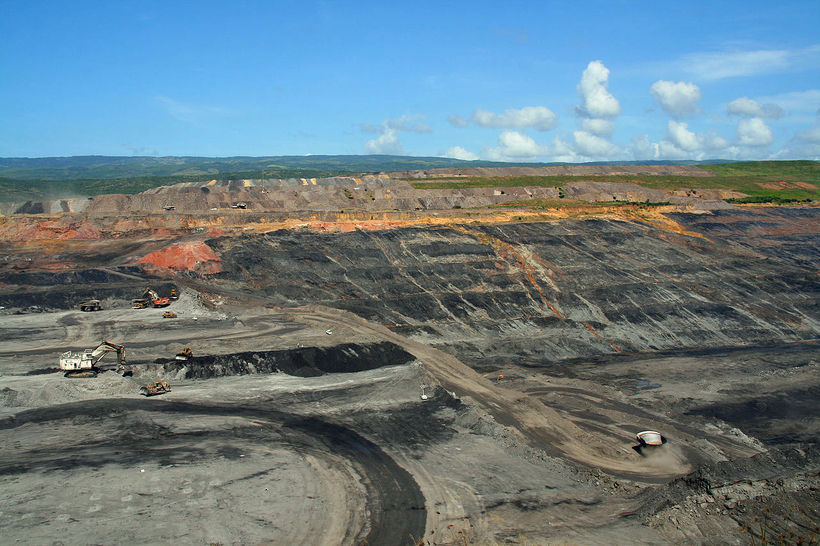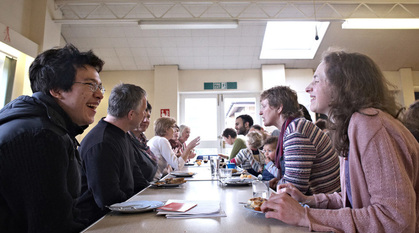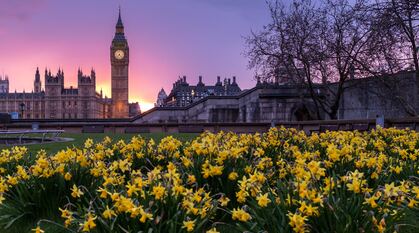What does climate breakdown have to do with our work on migration?
There will be no climate justice if we fail to address toxic colonial legacies and build lasting new connections, writes Tatiana Garavito.

Much of our current political discourse engages with climate change and migration each in isolation. This deflects the necessary conversations around power, distribution of resources and justice. It also divides our efforts around creating a peaceful and just world.
Climate experts predict that devastating climate change could force many more millions of people to migrate, and so the work of tackling climate breakdown and the work of building a culture of welcome in the UK is fundamentally intertwined.
Resisting colonial legacies
But this is not the only reason. Climate change did not happen by accident; it is the consequence of an economic model based on exploiting the living systems of the planet for profit. The work of reimagining how we relate to each other and to the earth is both incredibly challenging and essential to our survival. We must learn as much as we can from each other about our shared histories and struggles.
In my home country of Colombia, there is a small town named Cajamarca. A couple of years ago, the people of Cajamarca won a battle against a major international mining giant. The company wanted to exploit the rich seam of gold that the town sits on and would have brought about the biggest gold mine in Latin America. However, the townspeople fought this project for over 10 years, pushing back against the company's tactics and developing an alternative vision of prosperity and unity for their community.
For the community of Cajamarca, it was a struggle not only against a corporation but also against the colonial legacy of an economic model that, for hundreds of years, has been extracting, plundering and displacing communities. This exploitative model destroys territories, land, water and life and in doing so, brings about ecological collapse.
Territory and meaning
To communities like Cajamarca in Latin America the word territory refers to more than just the land. It also refers to the knowledge about the places we inhabit, its animals, its plants, and the ecosystems that make life on our planet possible. This idea of territory acknowledges the co-dependence of our existence, in a physical, communal, and spiritual sense, with our surroundings. That's why when communities in Latin America and many other parts of the Global South resist these projects, they do it even with their own lives – because of how much is at stake. However sometimes, this resistance is simply not enough.
Connecting the issues we work on in Britain with movements around the world and the reality of those already affected is vital. This year, temperatures hit 1°C above pre-industrial levels and they will continue to rise if we continue with business as usual.
Climate breakdown
The consequences of climate change are already enormous – changing weather patterns, droughts, air quality, hunger, public health crises, drought, floods and displacement. So how closely are we listening to people from communities already affected by climate change and its root causes: colonialism, capitalism, patriarchy and racism? How are we responding to their leadership? And what are we learning from them?
In a letter to Extinction Rebellion published in May 2019, diaspora groups and groups based in the Global South explain: "the bleakness is not something of 'the future'. For those of us who are indigenous, working class, black, brown, queer, trans or disabled, the experience of structural violence became part of our birthright. Greta Thunberg calls world leaders to act by reminding them that 'Our house is on fire'. For many of us, the house has been on fire for a long time: whenever the tide of ecological violence rises, our communities, especially in the Global South, are always first hit. We are the first to face poor air quality, hunger, public health crises, drought, floods and displacement."
How did we get here?
To even begin to imagine how we can prevent dangerous levels of climate change, we need to understand how we got to this point. Colonial projects, whose sole purpose was the pursuit of profit and domination, drove us here. The success of economic exploitation has required centuries of racism, sexism and classism from institutional power. These systems of oppression continue to shape the conditions we find ourselves in.
As climate justice activist Nathan Thanki put it, "the fight for climate justice is not only about cutting carbon emissions and other greenhouse gases, it is about the fundamental transformation of the systems that govern and underpin our lives."
Connecting the dots
Lasting and transformative change happens when we are able to connect the dots between struggles, from climate change to housing; from fighting austerity as a whole to cuts specifically targeting women, BME and disabled people; from fighting the rise of the far right to the movement to shut down detention centres. The success of our movements and therefore the survival of life on our planet relies on our ability to connect these dots and our commitment to justice for everyone more than ever before.
Quakers are working to connect these issues through our Sanctuary Everywhere and climate justice work. A network of 98 Sanctuary Meetings across the country actively support displaced communities and explore issues of power and privilege.
Recognising Britain's historic and current role in an extractive global economic system, we are also calling on the UK government to make deep changes to the way our economy works in order to end our dependence on fossil fuels and build an economy that works for everyone.
Climate change is the fight of our lives, and we need to do it right.


